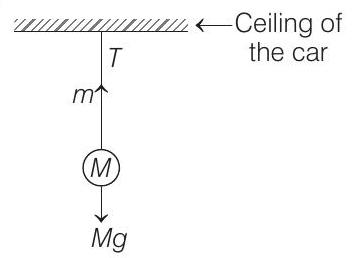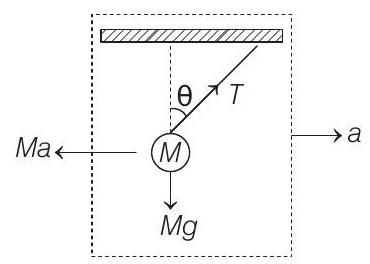Wave Motion 1 Question 4
4. A heavy ball of mass
(2019 Main, 9 Jan I)
(a)
(b)
(c)
(d)
Show Answer
Answer:
Correct Answer: 4. (b)
Solution:
- When the car is at rest, then the situation can be shown in the figure below.

Since,
where,
Now, when the car has acceleration ’

Resolving the components of ’
Squaring both sides of Eqs. (ii) and (iii) and adding them, we get
Now, the velocity of the wave in the string would be given as,
Dividing Eq. (i) and Eq. (v), we get
or
Squaring both the sides, we get
Using binomial expansion,
On both sides, we get






